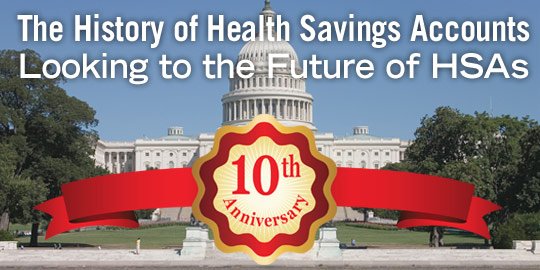Health Savings Accounts Continue To Grow
 One of Donald Trump’s campaign promises is to make Health Savings Accounts more widely used. The purpose of HSAs is to give patients more directly control over health spending, and reducing the share of spending controlled by insurers. Unfortunately, the 2003 law which established HSAs requires they be linked with a highly regulated type of health insurance policy.
One of Donald Trump’s campaign promises is to make Health Savings Accounts more widely used. The purpose of HSAs is to give patients more directly control over health spending, and reducing the share of spending controlled by insurers. Unfortunately, the 2003 law which established HSAs requires they be linked with a highly regulated type of health insurance policy.
These policies, like all health insurance today, give insurers power to dictate prices instead of allowing prices to be formed through interactions between patients and providers (that is, a normal market process). So, these health insurance policies are not as popular as truly consumer-driven plans should be.
Nevertheless, HSAs (which are bank accounts, not health insurance policies) are growing like gangbusters, according to new research from the Employee Benefits Research Institute (EBRI). As I wrote previously, EBRI is a rock-solid member of the health-benefits establishment. If Trump wants to expand the use of HSAs, EBRI’s evidence suggests he is pushing on an open door.






